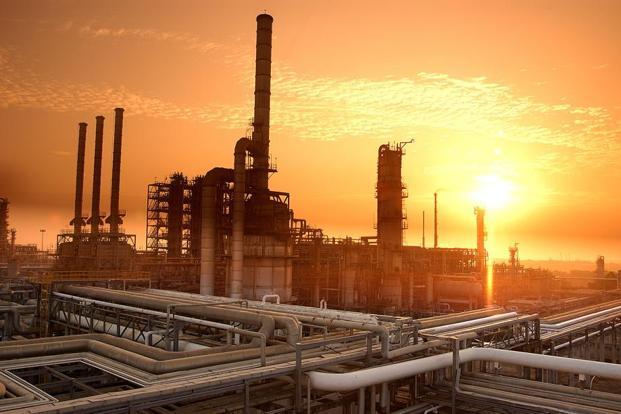
New Delhi: India offered to step up crude oil imports from Iran as soon as sanctions imposed by the West are lifted early next year.
The offer was made at a high-level meeting in the capital on Monday between external affairs minister Sushma Swaraj and visiting Iranian minister of economic affairs and finance Ali Tayyebnia.
A person privy to the discussions said that payment channels for oil shipments, which are partly blocked now, will be opened next year, allowing for higher imports from Iran, which supplied 6.5 million tonnes of crude in the first half of the fiscal.
“Iran offers 90-day credit and free shipping, which makes Iranian crude attractive for Indian refiners,” said the person, who asked not to be named.
Currently, India pays 45% of the import bill in rupees through UCO Bank. The remaining, which is to be paid in euros, is blocked on account of the restrictions on financial institutions dealing with Iran. This amount will be paid once channels open.
Sanctions are expected to be lifted in January. On 20 July, Iran reached an agreement with the US, the European Union and the UN, accepting long-term restrictions on its nuclear programme in return for lifting of trade and financial sanctions.
“The amount of extra crude to be purchased from Iran would depend on the terms offered,” said the person.
The mix of crude Indian refiners import (Indian basket) has now fallen to a decade low of $33-34 a barrel and a further decline in price appears likely. Refiners source about 10-20% of their requirement from global spot markets to take advantage of falling prices.
Swaraj and Tayyebnia discussed the prospects of boosting oil trade at the India-Iran Joint Commission meeting in the capital. The visiting official had also met Prime Minister Narendra Modi to discuss cooperation between the nations on oil and gas, investment and connectivity on Monday.
Indian refiners importing Iranian crude—Mangalore Refinery and Petrochemicals Ltd (MRPL) and Essar Oil—are likely to bargain hard considering the downward pressure on crude prices.
“A large part of the Middle East and African crude earlier supplied to the US is now being diverted to Asia in the wake of surplus oil in America. The US, which had 5.5 million barrels per day production a few years ago, now has an output of over 9 million barrels a day. The lifting of export ban on American producers too is expected to influence the price of oil in world markets,” said R.S. Butola, former chairman of state-owned refiner Indian Oil Corporation.
The economic slowdown in China and the sluggish growth in Europe too are expected to add to the bearish sentiment in crude prices in the short term. Refiners like MRPL and Indian Oil Corp. Ltd have been a beneficiary of the decline in crude oil price, though it has dealt a blow to upstream producers like ONGC and Oil India Ltd.
Iran is currently the fifth largest oil supplier to India. Kuwait, Saudi Arabia, Nigeria and Venezuela are the other leading suppliers. It was India’s second largest supplier, after Saudi Arabia, till 2010-11, and lost its share on account of the sanctions.
India, which has 22 refineries with a capacity of 215 million tonnes a year, hopes to become a refining hub catering to regional demand and will import about 188.23 million tonnes of crude oil this financial year.